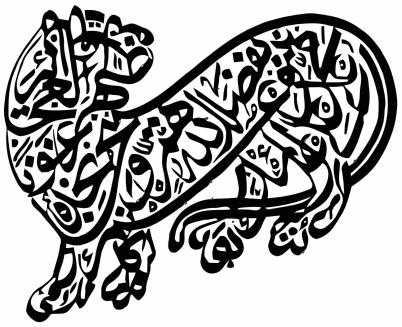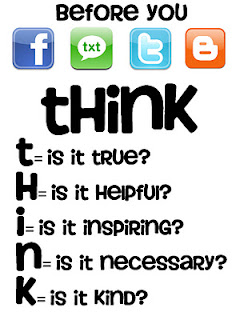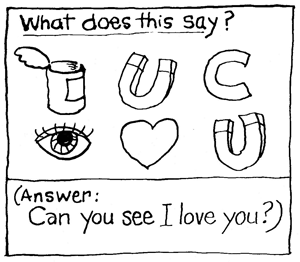Valerie's Fox Illustration
http://valeriejamess.blogspot.com/2015/05/vector-illustrator-fox.html
This is a great illustration. It only has some downfalls. The artist followed all of the steps and instructions to create the perfect vector illustration of a fox. There is only one thing she forgot which was the background. Besides that everything is perfect.
Valerie's Brochure
http://valeriejamess.blogspot.com/2015/05/event-program-booklet.html
If this was a real event i would be more than happy to go.
Tuesday, June 2, 2015
Friday, May 29, 2015
Wednesday, May 27, 2015
Wednesday, May 13, 2015
Monday, May 11, 2015
Friday, May 8, 2015
Definition of Infographic
Graphic visual representations of information, data or knowledge intended to present complex information quickly and clearly. It orginates from the words information and graphics. It is usually used by engineers and political economists. Infographics are important to Graphic Designs because it uses pictures to communicate the message being sent with a little bit of words.
URL Source: http://naldzgraphics.net/tips/reasons-why-infographics-are-important/
Monday, May 4, 2015
Definitions/serif fonts etc.
Serif: A slight projection finishing off a stroke of a letter in certain typefaces.
Sans-Serif: Without a slight projection finishing off a stroke of a letter in certain typefaces.
Margin: The edge or border of something.
Guide: A person who advises or shows the way to others.
Bleed: The zone outside the trim area.
CMYK: A color model in which all colors are described as a mixture of these four process colors.
Image Resolution: The detail an image holds.
Proof Copy: A copy of (a book, story, etc) made from trial impressions made from composed type, or print-outs (from a laser printer, etc) for the correction of errors.
Art board: A type of good-quality cardboard used for illustration and painting.
Registration Mark: Marks make to a surface to help with alignment.
Sans-Serif: Without a slight projection finishing off a stroke of a letter in certain typefaces.
Margin: The edge or border of something.
Guide: A person who advises or shows the way to others.
Bleed: The zone outside the trim area.
CMYK: A color model in which all colors are described as a mixture of these four process colors.
Image Resolution: The detail an image holds.
Proof Copy: A copy of (a book, story, etc) made from trial impressions made from composed type, or print-outs (from a laser printer, etc) for the correction of errors.
Art board: A type of good-quality cardboard used for illustration and painting.
Registration Mark: Marks make to a surface to help with alignment.
business cards location
GotPrint.com
-2500 cards for $31.70
- Burbank CA
-1-3 Business days after printing is complete
VistPrint.com
-500 for $9.99
-Boston
-2 days
-Zazzle.com
-100 pack $20
-San Jose, CA
-9 hours w express
UPrinting.com
-25 for $9.77
-Santa Monica
-3 Business days
Staples Copy&Print
-100 for $9.99
-Downtown LA
-3 business days
-2500 cards for $31.70
- Burbank CA
-1-3 Business days after printing is complete
VistPrint.com
-500 for $9.99
-Boston
-2 days
-Zazzle.com
-100 pack $20
-San Jose, CA
-9 hours w express
UPrinting.com
-25 for $9.77
-Santa Monica
-3 Business days
Staples Copy&Print
-100 for $9.99
-Downtown LA
-3 business days
Friday, May 1, 2015
Pictogram,Calligram,Rebus
Calligram
A calligram is a poem, phrase, or word in which the typeface, calligraphy or handwriting is arranged in a way that creates a visual image. The image created by the words expresses visually what the word, or words, say. In a poem, it manifests visually the theme presented by the text of the poem. Guillaume Apollinaire was a famous calligram writer and author of a book of poems called Calligrammes. His poem written in the form of the Eiffel Tower is an example of a calligram.
 Calligram of a tiger in Arabic script
Calligram of a tiger in Arabic script
Calligram of a snake in Georgian script
.svg/86px-Ioane_sineli%2C_klemaqsi_(snake).svg.png)

Ant
DOT pictograms representing, from left, "Escalator (up)," "Nursery" and "Ground transportation" Babysitter
Can You See Well?
"There were on the breakfast table only a cornstarch pudding, a puny corn-ball, a muffin, some dandelions, a flat pickle, a sharp apple-pie, a tin plate, and iron spoon." -Trowbridge, 1866
A calligram is a poem, phrase, or word in which the typeface, calligraphy or handwriting is arranged in a way that creates a visual image. The image created by the words expresses visually what the word, or words, say. In a poem, it manifests visually the theme presented by the text of the poem. Guillaume Apollinaire was a famous calligram writer and author of a book of poems called Calligrammes. His poem written in the form of the Eiffel Tower is an example of a calligram.
 Calligram of a tiger in Arabic script
Calligram of a tiger in Arabic scriptCalligram of a snake in Georgian script
.svg/86px-Ioane_sineli%2C_klemaqsi_(snake).svg.png)

Ant
Pictogram
A pictogram, also called a pictogramme, pictograph, or simply picto,[1] and also an 'icon'[citation needed], is an ideogram that conveys its meaning through its pictorial resemblance to a physical object. Pictographs are often used in writing and graphic systems in which the characters are to a considerable extent pictorial in appearance.
Pictography is a form of writing which uses representational, pictorial drawings, similarly to cuneiform and, to some extent, hieroglyphic writing, which also uses drawings as phonetic letters or determinative rhymes. In certain modern use, pictograms participants to a formal language (e.g. Hazards pictograms).
DOT pictograms representing, from left, "Escalator (up)," "Nursery" and "Ground transportation" Babysitter
Rebus
A rebus is an allusional device that uses pictures to represent words or parts of words. It was a favourite form of heraldic expression used in the Middle Ages to denote surnames.
For example, in its basic form, three salmon (fish) are used to denote the surname "Salmon". A more sophisticated example was the rebus of Bishop Walter Lyhart (d.1472) of Norwich, consisting of a stag (or hart) lying down in a conventional representation of water.
The composition alludes to the name, profession or personal characteristics of the bearer, and speaks to the beholder Non verbis, sed rebus, which Latin expression signifies "not by words but by things"[1] (res, rei (f), a thing, object, matter; rebus being ablative plural).
Can You See Well?
"There were on the breakfast table only a cornstarch pudding, a puny corn-ball, a muffin, some dandelions, a flat pickle, a sharp apple-pie, a tin plate, and iron spoon." -Trowbridge, 1866
Wednesday, April 29, 2015
Friday, April 24, 2015
Subscribe to:
Comments (Atom)












































